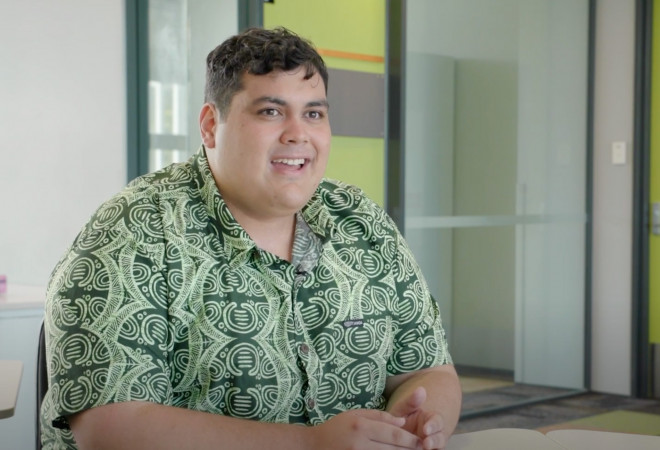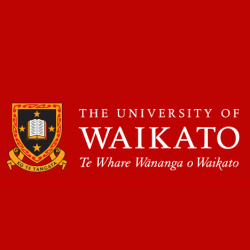
Weaving the mat | Data-informed initiatives to enhance Māori and Pacific Student Achievement
Status
Completed: 7 September 2022
Project Details
This project from the University of Waikato aimed to develop new teaching and learning initiatives for Māori and Pacific students that were informed by a literature review, learner analytics, and student voice. In the midst of COVID-19, the project team developed two learner initiatives: Te Kāhui Pīrere for Māori students and the Imua Learner Leader Initiative for Pacific students. The main outputs are a series of teaching support videos where our students speak about success for themselves.
Aims:
The project aims to:
- Develop institutional capability to create cohesive systems, programmes and experiences that are inclusive, culturally responsive, rewarding and fulfilling for Māori and Pacific students.
- Establish teaching and learning initiatives and environments across the university that are informed by detailed data analytics, combined with a literature review and, especially, rich student voice.
- Produce research that will have tangible benefits for Māori and Pacific learners, families, iwi, communities and organisations, but also for tertiary institutions seeking to create transformative, institutional change to improve educational outcomes for Māori and Pacific learners.
- Provide evidence of and better articulate the impact of data, literature and indigenous voice-informed learning support initiatives on such outcomes.
Methodology:
To achieve our aims while respecting complex identities, cultures, languages and communities, we applied a weaving methodology rooted in Māori and Pacific heritage, culture, language and research methodologies. The project’s methodology was grounded by core aho/‘aho (strands) of:
- Kōrerorero and talanoa (dialogue-based relationships)
- Mo‘olelo and purakau (telling one’s own story)
- Indigenous self-determination and participation
- Research as shape and power
The project had five phases:
Phase 1: Literature review (What works and why? What evidence do we have already for what works? What have Māori and Pacific researchers, learners, families, and communities already told us about what works?)
We needed to know what was working well locally (University of Waikato), nationally and internationally. This design, development, and delivery of initiatives to best support Māori and Pacific students to complete qualifications successfully and be best prepared for their futures. Such studies helped us identify what is working for Māori and Pacific students and why it might be working. These studies gave us a starting place and grounding. We saw how closely these studies aligned with the experience of UoW students.
Phase 2: Development of data and learner analytics and tools (What do we know? What can we know? How can we use data tools to improve Māori and Pacific learner success?)
To be ‘data-informed’, we also employed data analytics and tools. The sources of data we could access and our capacity to harness that data increased over the course of the project, allowing us to access richer sources of data.
Phase 3: Māori and Pacific student voices (What do students think? What have they experienced? What can we learn from them to improve Māori and Pacific learner success more generally?)
We utilised wananga for Māori students and fono for Pacific students to obtain student voice and to learn more about what helps them to achieve success and what hinders that success.
Phase 4: Data-informed initiative enhancement and development (How can we tailor initiatives using literature, data, learner analytics and student voice to improve Māori and Pacific learner success?)
Based on what we learned from the literature, data and students themselves, we created and enhanced two first-year cultural legacy based initiatives designed to help learners successfully transition into tertiary study: Te Kāhui Pīrere for Māori students and the Imua Learner Leader Initiative for Pacific students.
Phase 5: Cohort tracking and further findings (How is it going and how can we do even better? What evidence can we see that these initiatives are having an impact on Māori and Pacific learner success?)
We gathered qualitative feedback from students on their experiences in these initiatives but we also used further data to track the Te Kāhui Pīrere and Imua cohorts against, Māori , Pacific and non-Māori/non-Pacific students to determine whether these initiatives could produce more equitable outcomes in achievement.
Phase 6: Learnings and further application (What are some of the lessons that we learned during this project? What work do we still have ahead of us? How will we incorporate our learnings into that work?)
We gleaned a number of learnings from the project, including what success means to our Māori and Pacific learners and should look like for us as an institution, that we have incorporated into strategic direction and implementation.
Intended outcomes:
- Institutional capability to facilitate the educational success and fulfilment of Māori and Pacific students
- Systems and processes for effective use of data and research that are scalable internally, and can be shared with other institutions
- Contributions to knowledge about inclusive education at national and international levels.
Team

Dr Sarah-Jane Tiakiwai
Project Leader
The University of Waikato
Dr Keakaokawai Hemi
Project Leader
The University of Waikato
Dr Tracy Bowell
The University of Waikato
Sonya Saunders
The University of Waikato
Krista Henare
The University of Waikato
Dr Lynne Parmenter
The University of Waikato
Campbell Vette
The University of Waikato
Robbie McGregor
The University of Waikato
Dr. Alison Campbell
The University of Waikato
Sianiti Nakabea Bulisala
University of WaikatoStatus
Funding
$300,000.00 (excl GST)
Key Findings
Key Recommendations
Students answer the question "Why did you come to university?"
The video is part of a series of a teaching support series developed to inform Māori and Pacific student achievement, where students speak about success for themselves.
- 6 September 2022
Students answer the question "What are the top two things you think your lecturer-tutor should know about you as a Māori or Pacific student?"
The video is part of a series of a teaching support series developed to inform Māori and Pacific student achievement, where students speak about success for themselves.
- 6 September 2022
Students answer the question "What has inspired you to finish your qualification?"
The video is part of a series of a teaching support series developed to inform Māori and Pacific student achievement, where students speak about success for themselves."What has inspired you to finish your qualification?"
- 6 September 2022
Students answer the question "What role has Māori or Pacific culture and a culture of belonging at the University played in your success?"
The video is part of a series of a teaching support series developed to inform Māori and Pacific student achievement, where students speak about success for themselves.
- 6 September 2022
Students answer the question "Who is your favourite lecturer and why?"
The video is part of a series of a teaching support series developed to inform Māori and Pacific student achievement, where students speak about success for themselves.
- 6 September 2022
Students answer the question "What drives you to attend lectures and tutorials consistently and to participate?"
The video is part of a series of a teaching support series developed to inform Māori and Pacific student achievement, where students speak about success for themselves.
- 6 September 2022
Students answer the question "What is your favourite paper and why?"
The video is part of a series of a teaching support series developed to inform Māori and Pacific student achievement, where students speak about success for themselves.
- 6 September 2022
Students answer the question "What are some of the challenges you had to face when completing your assessments and how did you overcome them?"
The video is part of a series of a teaching support series developed to inform Māori and Pacific student achievement, where students speak about success for themselves.
- 6 September 2022
Students answer the question "Have you used the learning support that is available to you? If not, why not? If so, how did that work for you?"
The video is part of a series of a teaching support series developed to inform Māori and Pacific student achievement, where students speak about success for themselves.
- 6 September 2022
Students answer the question "What are the challenges you face as a Pacific or Maori student?"
The video is part of a series of a teaching support series developed to inform Māori and Pacific student achievement, where students speak about success for themselves.
- 6 September 2022
Students answer the question "What’s one thing your lecturer did/did not do that you will remember for life?"
The video is part of a series of a teaching support series developed to inform Māori and Pacific student achievement, where students speak about success for themselves.
- 6 September 2022
Students answer the question "What do you think lecturers could learn from attending Language Weeks and other cultural events?"
The video is part of a series of a teaching support series developed to inform Māori and Pacific student achievement, where students speak about success for themselves.
- 6 September 2022
Report on the data-informed initatives to inform Māori and Pacific student achievement project. A University of Waikato project, completed in 2022.
- 6 September 2022
Presentation by project leader Dr. Keakaokawai Hemi on the outcomes of the University of Waikato "Weaving the mat" project.
- 7 September 2022